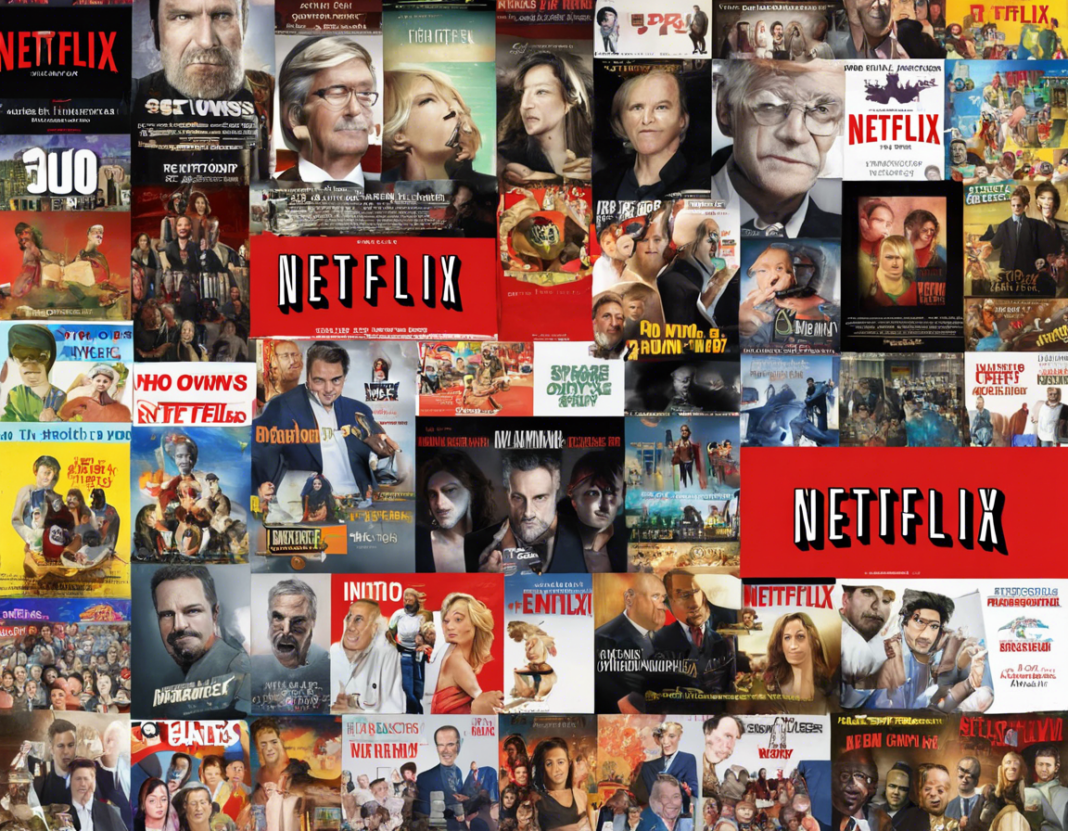Netflix, the popular streaming service provider, has become a household name globally, revolutionizing the way people consume media and entertainment. Founded in 1997 by Reed Hastings and Marc Randolph, Netflix started as a DVD-by-mail rental service and later ventured into the realm of online streaming in 2007. Since then, Netflix has seen exponential growth, boasting millions of subscribers worldwide and producing critically acclaimed original content.
In discussing who owns Netflix, it’s important to understand the structure of ownership in the company. Netflix is a publicly traded company, which means that it is owned by its shareholders. However, there are certain key players in the ownership of Netflix that hold significant influence over the company’s direction and decision-making process.
Major Shareholders
1. Reed Hastings
Reed Hastings, one of the co-founders of Netflix, is a significant shareholder in the company. As of [latest date], Hastings held approximately [percentage] of Netflix’s shares. Hastings has served as the CEO of Netflix for many years and has been instrumental in shaping the company’s strategy and growth.
2. Institutional Investors
In addition to individual shareholders, Netflix is also owned by various institutional investors such as mutual funds, pension funds, and hedge funds. These investors hold substantial stakes in the company and play a crucial role in influencing Netflix’s performance and strategic decisions.
Ownership Structure
Netflix follows a traditional corporate ownership structure, with a Board of Directors overseeing the company’s operations and governance. The Board of Directors is responsible for representing the interests of shareholders and ensuring that the company is managed effectively and ethically.
Board of Directors
The Netflix Board of Directors is composed of [number] members, including Reed Hastings as the Chairman. The Board meets regularly to discuss and approve key decisions related to the company’s business strategy, financial performance, and corporate governance.
Key Considerations
1. Stock Performance
Netflix’s stock performance is closely monitored by investors and analysts, as it reflects the company’s financial health and growth prospects. Factors such as subscriber numbers, content offerings, and competition can all impact Netflix’s stock price.
2. Competition
Netflix faces fierce competition in the streaming industry from rivals such as Amazon Prime Video, Disney+, and Hulu. The competitive landscape can influence investor sentiment and Netflix’s market position.
3. Content Strategy
Netflix’s content strategy, including its investment in original programming and licensing agreements, is a key driver of its success. Investors closely follow Netflix’s content pipeline and audience reception to gauge the company’s long-term prospects.
Frequently Asked Questions (FAQs)
1. Who are the founders of Netflix?
Reed Hastings and Marc Randolph co-founded Netflix in 1997.
2. How many subscribers does Netflix have?
As of [latest date], Netflix had over 200 million subscribers worldwide.
3. Does Netflix pay dividends to its shareholders?
Netflix does not currently pay dividends to its shareholders, as the company reinvests its profits for growth.
4. What is Netflix’s market capitalization?
Netflix’s market capitalization is approximately [market cap] as of [latest date].
5. How does Netflix make money?
Netflix generates revenue primarily through subscription fees paid by its subscribers for access to its streaming service.
6. Who is the current CEO of Netflix?
Reed Hastings has served as the CEO of Netflix since its inception.
7. Does Netflix have any debt?
Netflix has taken on debt to fund its content investments and expansion. As of [latest date], Netflix’s total debt was approximately [debt amount].
8. What are Netflix’s growth prospects?
Netflix continues to focus on expanding its original content library, international presence, and technological innovations to drive future growth.
9. How does Netflix handle competition from other streaming services?
Netflix differentiates itself through its vast content library, personalized recommendations, and global reach to stay competitive in the streaming market.
10. What are some potential risks for Netflix investors?
Investors should consider factors such as subscriber churn, content costs, regulatory challenges, and market competition when evaluating Netflix as an investment opportunity.






